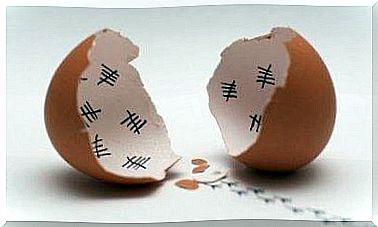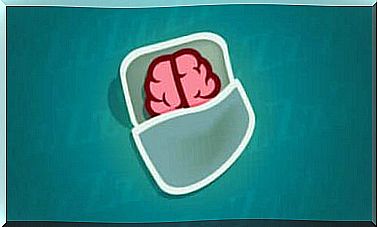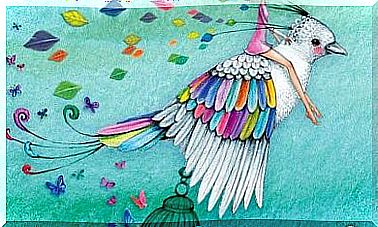Kuftisisa – Or The Danger Of Thinking Too Much

There is a tribe in Zimbabwe that has come up with a term that describes most of the psychological problems that plague modern society. This is the expression “kufenisisa”, which we could roughly translate as “thinking too much”. KUFISISA can refer to conflicts that preoccupy us in the present or trauma we have experienced in the past.
Among the Shona, who make up a large part of Zimbabwe’s population, the idea is widespread that if we think about certain thoughts over and over again, it makes you sick. In fact, they believe that such behavior not only contributes to mental problems, but also causes physical discomfort. The people of this tribe know that excessive brooding can lead to anxiety disorders and depression, but also to other symptoms that manifest themselves on a physiological level, including fatigue and headaches.
But is there any truth behind this concept of Kufenisisa? And can it be transferred to our society? Do we cause problems when we think too much? in this article we want to look for the answers to these questions.
Kufenisisa – when thinking too much makes us sick
The human species is rightly proud to have developed an enormous capacity for reflection and reflection. Unlike most other species, who are instinctively guided, we are able to reflect on what is happening to us and make a plan for how to respond. This has brought us way forward in evolutionary history, but it’s still a double-edged sword.

Because with the ability to recognize and analyze what is happening to us, we have acquired another ability: that of suffering because of the circumstances. If we think about it for a moment, we quickly realize that it is precisely this ability to reflect that brings us a lot of problems.
To the best of our knowledge, the Shona are the only tribe that can describe this connection with a single word. Kufenisisa. Western psychologists are aware of this problem, but need a handful of paragraphs to explain it. We don’t want to exclude ourselves from this at all.
Well, with the development of cognitive science and its myriad of studies into how the human mind works, it has become increasingly clear to us that it is not the events that happen to us that make us feel bad, but our interpretation of them, our emotions and thoughts about them.
Albert Ellis, the founder of Rational-Emotional Behavioral Therapy, knew all too well about it. What really affects us is not what we experience, but what we associate with what we have experienced in our head. But how is it possible that our brains make us feel bad?
Understand the role of our brain
We humans grow up in a hostile environment. Yes, most of us live in abundance and don’t have to worry about having food, drink and a roof over our heads tomorrow. But parts of our brains still function as if we lived in the Stone Age. We could even say that some of these functions have become obsolete – while they ensured our survival thousands of years ago, today they contribute to our development of mental disorders.
Some of these functions, which are poorly adapted to the modern world, concern the processing of information. Our ancestors lived in constant danger. If they wanted to survive, they couldn’t lose sight of their surroundings and had to be ready at all times to react when a threat materialized. The risks to which they were exposed included wild animals, competitors in the struggle for food and shelter, but also such uncontrollable dimensions as temperature and precipitation.
From an evolutionary point of view, that wasn’t that long ago and our brains are still programmed to flee from saber-toothed tigers. Our reticular activation system continues to see to it that we draw our attention to anything that is potentially dangerous.
That is why we tend to focus on the negative. And it is the organic counterpart to kufenisisa, the concept that the Shona use to describe that people in their environment primarily perceive the bad and suffer from it.
How can we stop thinking too much?
The importance of our thought patterns for our wellbeing cannot be overestimated. This becomes clear to us as we try to break through them and change the way we see the world. It is a real challenge, but one that can be overcome if we focus on two key aspects that have been known to philosophers for centuries:
- Let’s change our thoughts about what’s happening to us.
- Let’s live in the present.
Let’s take a closer look at both points.

1. Change our thoughts
The first answer to the question of how to address discomfort from over-brooding is to simply reshape our thoughts and internal dialogue. Schools like stoicism teach that what happens to us seldom has any real meaning. And modern cognitive psychology takes up this long-standing idea to teach us how to broaden our perspective on what is happening now.
Proponents of these ideas are convinced that what we experience is seldom as terrible as we experience it. If we manage to internalize this idea, we will see many of our problems vanish into thin air. According to this doctrine, for example, it makes little sense to drown yourself in a sea of worry, for two reasons: On the one hand, a lot is beyond our sphere of influence and, on the other hand, we are able to find our happiness, come what may.
2. Live in the here and now
If we look to the Far East and deal with the philosophies that have their origin there, with Buddhism and the modern practice of mindfulness for example, then we also come across ideas that are similar to that of kufenisisa: The cause of all suffering is ours Thought patterns. Therefore, all those thinkers who perceive the world in a rather unpleasant light are recommended to learn strategies that allow them to withdraw their attention from the past and future and focus it in the present.
It’s not an easy task. But if we aim to live more in the present and practice techniques like meditation and yoga, we can be successful. Numerous studies have confirmed that both mental and physical health benefit when we calm our minds.
The idea of kufenisisa or the idea that it won’t do us any good if we think too much can be found in different cultures on every continent. But with a little time and effort, we can all learn how to avoid this problem. If you need help with this, don’t hesitate to consult an expert or speak to your trusted psychologist. They can help you find the way to freedom of mind. It’s less rocky than you might think.









